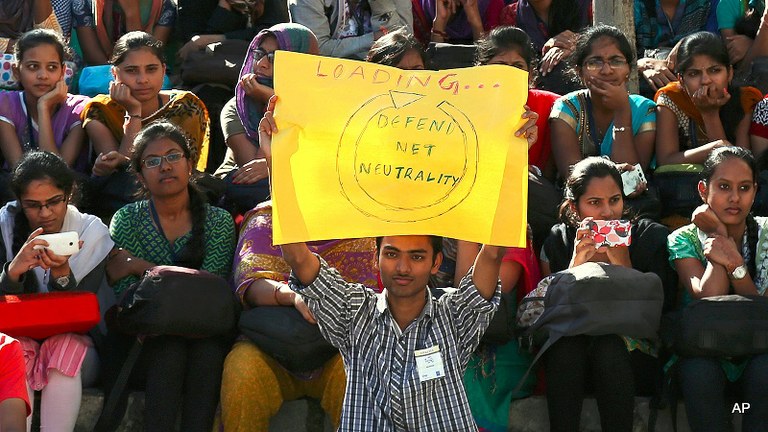SpaceX Explosion Slows Facebook & Israeli Efforts To Control Online Content
The article by Kit O' Connell published by Mint Press News on September 13, 2016 has quoted Pranesh Prakash.
When a rocket operated by space startup SpaceX burned up on the launch pad, it was a setback to the prospects of commercial space travel, as well as efforts by Facebook to control the online experiences of millions of rural internet users.
Facebook’s project, Internet.org, is described by founder Mark Zuckerberg in charitable terms, but critics have accused it of spreading “techno-colonialism.”
The Sept. 1 fire in Cape Canaveral, Florida, destroyed a $200 million satellite owned by SpaceCom, an Israeli communications satellite firm, and co-leased by Facebook. The satellite, Amos-6, was built by Israel Aerospace Industries, a government-owned aviation and aerospace manufacturer.
Facebook’s partnership with SpaceCom is another sign of the corporation’s deepening ties with Israel. In June, Facebook appointed Jordana Cutler, a close advisor to Israeli Prime Minister Benjamin Netanyahu, as head of policy and communications at Facebook’s Israeli office.
Another setback for Facebook’s Internet.org
“Facebook was counting on [the satellite] to beam internet service to sub-Saharan Africa as part of its ambitious Internet.org project,” noted Will Oremus, Slate’s senior technology writer.
The Los Angeles Times reported that SpaceCom’s stock fell 9 percent on the Tel Aviv Stock Exchange after the explosion. Zuckerberg shared his dismay in a post on his facebook page, writing:
“As I’m here in Africa, I’m deeply disappointed to hear that SpaceX’s launch failure destroyed our satellite that would have provided connectivity to so many entrepreneurs and everyone else across the continent.”
Internet.org would help users get online in areas lacking conventional internet access, and the service, which works in partnership with local mobile phone companies, has launched, at least provisionally, in 48 countries in Africa, Asia, and Latin America. In addition to satellites, Internet.org plans to use cutting edge solar-powered drones to expand internet access in remote parts of the world.
The service is not without controversy, though. An offering called “Free Basics” would provide users who can’t afford full internet access with a curated selection of websites, tailored for use on low bandwidth devices such as older smartphones. Free Basics generated international protests after it was rolled out in India, and was eventually blocked by the Telecom Regulatory Authority of India in March 2015 for violating the principle of net neutrality.
In a May 12 analysis for The Guardian, Mumbai-based journalist Rahul Bhatia suggested the failure of Free Basics was also due to Zuckerberg’s dismissive attitude toward the Indian government and people.
An unnamed Facebook executive told Bhatia that Zuckerberg made the “mistake of thinking that a third-world country is a banana republic. So institutions, the public, the press — they can be bypassed.”
Colonialism or philanthropy?

Google and its parent company, Alphabet, also intend to spread internet to rural, underserved areas through the unique balloon-based Project Loon. Tech site Pocket-Lint reported in March 2015 that SpaceX hoped to offer internet service through its satellites, in what reporter Luke Edwards called an “internet space race.”
Pranesh Prakash, a representative of the Centre for Internet & Society, an NGO based in Bangalore, India, questioned the company’s motivation in a June 2015 interview with Al-Jazeera.
“They’re doing it out of their self-interest,” Prakash told Tarek Bazley, Al-Jazeera’s science and technology editor.
“They are not doing it because they are charities, because they believe in altruism etc. They’re doing it because having more people online benefits them.”
And Aral Balkan, a human rights activist, told Bazley, “I wouldn’t call it philanthropy I would call it colonialism.”
In an August 2013 post on his homepage, Balkan went into more detail about his “strong reservations about why Google and Facebook want to be the ones providing this service.”
Noting that both tech corporations profit primarily from collecting and selling information about their users, he continued:
“Google and Facebook want to give everyone access to the Internet because they need more raw materials. More data. Your data. So they can cultivate more Digital Serfs to sell to their customers.”


